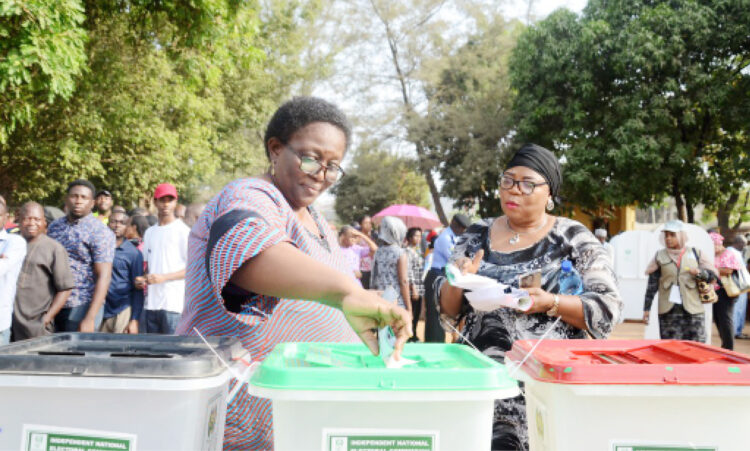Stakeholders in civil society organisations (CSOs) have affirmed that credible elections are not an abstract ideal as they are essential for Nigeria’s stability, development, and legitimacy on the global stage.
They said if Nigerians want 2027 to be different, the time for action is now, noting that credible elections do not happen by chance but require courage, reforms and commitment from all Nigerian.
To achieve this, the stakeholders called for the creation of an independent panel to oversee the appointment of leadership in the Independent National Electoral Commission (INEC).
They also advocated Kenya’s Independent Electoral and Boundaries Commission (IEBC) already used such a consultative approach involving multiple stakeholders in the past elections.
Speaking at a public presentation of outputs from the civic space, poverty and elections (CISPEN) project,
Tuesday in Abuja, a development expert, Dr Hussaini Abdu said such reform would do more than fix an administrative loophole in the country’s electoral process ahead of 2027 general elections.
Abdu proposed a system where candidates for INEC Chairman and Commissioners emerge through a transparent, merit-based, and competitive process, overseen by a body that includes the judiciary, professional associations, civil society, and other stakeholders.
“Imagine an INEC whose leadership owes allegiance not to the Presidency, but to the Nigerian people. It would strike at the heart of the trust deficit that has plagued our elections for decades.
As Nigeria approaches the post-Mahmood Yakubu era, we stand at a crossroads. We can continue with business as usual, where every appointment raises suspicion and every election begins under a cloud.”
While submitting that the state must see civil society as partners in nation-building, not adversaries, the pro-democracy activist added that these reforms require more than legislation or policy tweaks.
They demand a change of mindset: from government leaders who must recognise that dissent is not treason, and from citizens who must embrace their role as custodians of democracy.
“We cannot talk about credible elections without talking about civic space. Civic space is the oxygen of democracy; it is where citizens organise, speak out, hold leaders accountable, and demand better governance. But in Nigeria today, that oxygen is running out.”
On his part, the Founding Executive Director of Centre LSD, Dr Igbuzor, acknowledged that history of electoral process in Nigeria had been characterized with fraudulent.
He, however, urged all the stakeholders to continue to press further for better electoral process and civil engagement.
Otive Igbuzor assured that the current advocacy will be pursued to a logical conclusion through civil engagement of the National Assembly and others.
In her opening remarks, Secretary General of WRAPA, Mahdi, said the Civic Space, Poverty and Elections in Nigeria (CISPEN) project began in March 2025 as a joint initiative of WRAPA and Centre LSD, following the call by WRAPA Secretary General, Hajiya Saudatu Mahdi, on the urgent need to address Nigeria’s shrinking civic space and its impact on democratic participation.
In his welcome speech, Executive Director, Centre LSD, Mr. Monday Osasah, representated by Dr Margaret Fagboyo, said the mission of the project is to work with forces of positive change to empower citizens to transform society.
“The Civic Space, Poverty and Elections (CISPEN) project aims to promote citizen participation, accountability, and transparency in governance. The policy briefs and memo we are presenting today are key outputs of this project, and they address critical issues impacting Nigeria’s democracy and citizens’ well-being.”











